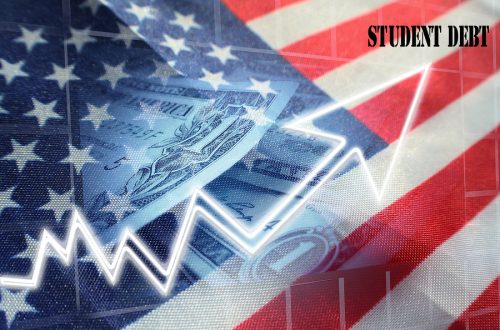Changes are on the horizon for student loans in 2021. Student loan reform has been an issue discussed for years, if not decades, but several events that occurred in 2020 have pushed the issue to the forefront. The presidential election, the coronavirus (COVID-19) outbreak, and the current economic climate have all pushed lawmakers to realize that student loan reform is a very real issue, and one that requires immediate action. The following possible changes could be coming in the new year.
Student Loan Cancellation
A number of recent legislative proposals have brought up the idea of student loan forgiveness. One proposal was included in the Heroes Act stimulus package proposed by House Democrats. In the legislation, lawmakers proposed to cancel up to $10,000 in student loan debt for borrowers who could demonstrate that they were struggling financially. Unfortunately, even though the legislation moved forward to the Senate, this portion of the original bill was removed. Senators Elizabeth Warren (D-MA) and Chuck Schumer (D-MA) have proposed legislation that would cancel $50,000 in student loan debt for borrowers who earn less than $125,000 in annual income. Lawmakers have pushed on President Elect Joe Biden to make a statement as to whether he supports or does not support student loan cancellation. Biden has stated that he would not likely pursue an executive order to cancel student loans, but rather, he encouraged Congress to consider immediate cancellation of $10,000 of student loans across the board. However, the fate of this proposal hinges on whether Republicans will retain control over the Senate. If they do, it is unlikely that student loan cancellation will move forward.
Deferment for Student Loan Payments
COVID-19 legislation, namely the CARES Act, brought about a pause for all outstanding federal student loan payments. In March 2020, this legislation paused payments on federal student loans, stayed student loan debt collection on defaulted loans, and stopped interest from accruing on all federal student loans. The legislation was created to help borrowers who were struggling financially during the pandemic. This “pause” is expected to expire as of January 31, 2021 unless Congress introduces legislation to extend this measure. Discussions have occurred regarding extending the forbearance period past January 31, but no decision has been made to date. How this proceeds could depend a great deal on COVID-19 numbers, the current unemployment rate, and the economy.
Student Loans and Bankruptcy
One major change that could be occurring in 2021 has to do with how student loans are handled in a consumer bankruptcy case. For the most part, student loans have been all but impossible to discharge in both Chapter 7 and Chapter 13 bankruptcy cases. Borrowers must file a separate case within the bankruptcy matter, naming the lender, and providing evidence of undue hardship on behalf of the borrower. Courts across the country have been inconsistent in how they have applied this test, leaving disparity across the board in how they are treated. However, a number of recent legal decisions have indicated that change could be come as to how loans are handled in bankruptcy cases. President Elect Biden has made statements indicating he would like to see student loans discharged in bankruptcy, and Congress also has bipartisan support for similar measures. If student loan cancellation does not occur, this may be the next viable path for student loan reform.
Employer Paid Student Loans
The idea of employer paid student loans has gained a lot of support. The CARES Act includes provisions that provide tax incentives for employers to assist their employees with repayment of their loans. Under the CARES Act, employers can make a maximum of $5,250 in tax-free payments towards student loans per employee. The legislation makes both private and federal student loans eligible for this benefit, so long as the payments go towards principal or interest on what is defined as a “qualified education loan.” Employers have the option of choosing either tuition assistance or student loan repayment, but they cannot choose both options. This legislation was set to expire at the end of 2020, but the new stimulus package passed by Congress shortly around Christmas extended the benefit through the end of 2025.
Please click here to read more.
For borrowers who are struggling with student loan debt, relief options are available. Many student loan borrowers are unaware that they have rights and repayment options available to them, such as postponement of loan payments, reduction of payments or even a complete discharge of the debt. There are ways to file for bankruptcy with student loan debt. It is important you contact an experienced Miami bankruptcy attorney who can advise you of all your options. As an experienced CPA as well as a proven bankruptcy lawyer, Timothy Kingcade knows how to help clients take full advantage of the bankruptcy laws to protect their assets and get successful results. Since 1996 Kingcade Garcia McMaken has been helping people from all walks of life build a better tomorrow. Our attorneys help thousands of people every year take advantage of their rights under bankruptcy protection to restart, rebuild and recover. The day you hire our firm, we will contact your creditors to stop the harassment. You can also find useful consumer information on the Kingcade Garcia McMaken website at www.miamibankruptcy.com.


